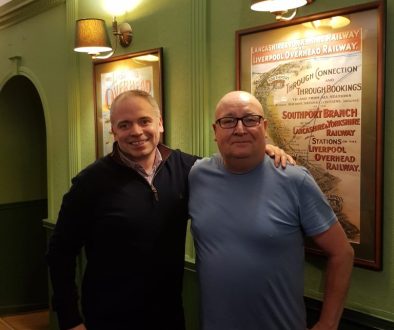Turtle Soup for The King, The Cato Street Chronicles by Judy Meewezen
History has often dismissed the men as ignorant, deluded fools. As the grandchild of railway workers, domestic servants and miners, this enraged me. Working at the BL on another project, I came across the letters, written by the principal conspirators to their families on the night before they were hanged. That was some time in 2007. From that moment, I was compelled to tell the story from the point of view of the participants, including the spy who betrayed them and their families. As well as extensive study of archive I drew from past interviews with activists in Ireland and South Africa as well as family members in a desolate English mining town.
I started work at once, in parallel with the other project – though that was later neglected. I rented out my flat to support myself and embarked on a kind of extended gap year of international sofa surfing. It took a lot longer than a year. When I finally finished the text, agents and publishers in the UK were unanimous in praise of the writing, but uncertain that the story would sell. That was 2018-9. A brave independent press in New York accepted the manuscript 30th November, 2019. Soon afterwards, covid 19 and the antics of a US President changed the world. Now the story of a population, remoted from its government and of an insider (allegedly) inciting vulnerable activists to assassinate the most powerful men in the land, could scarcely be more topical.
My story, though researched, is fictionalised because working-class histories are rarely adequately documented, and also because, for the sake of coherence, I had to restrict the number of characters and therefore focused on the central participants – and their private and political lives.
The contribution of the wives, all drawn from fragments given in court reports, correspondence etc. and from my interviewees, gives depth to the story. There’s a sense of hope that the efforts of these brave, ordinary men and women had a trajectory of which they too, might be proud.
Academic Background – BA HONS in German, University of Newcastle upon Tyne, M. PHIL in Drama, University of Manchester. While my children were young, I taught there, on a casual basis, drama text analysis and European drama history.
Later I crashed into then middle class, usually Oxbridge arenas of theatre, arts journalism and broadcasting, TV documentary and drama. After twenty years, the mortgage was paid up and I dropped out to write full time.
Synopsis
Turtle Soup for the King is the true and tragic story of the Cato Street Conspiracy; five tavern radicals and an infiltrator, told – for the first time – from their own points of view and with the participation of their spirited families.
The principal conspirators are two bootmakers and a butcher (unschooled Englishmen) and a cabinet-maker (erudite Scots-Jamaican). Their leader is English farmer’s son turned swordsman and guerrilla, Arthur Thistlewood. All are angered by social inequalities and by having to fight in wars and pay taxes without the right to participate in law making or express opinion by voting at elections. Inspired by the ideas of the American Revolution (especially Liberty or Death – seen, with a different application on Capitol hill in January) and of Thomas Jefferson, the tavern radicals are intent on changing society.
Arrested while heading for refuge in America, Thistlewood is released unexpectedly early from prison, unaware that the government has sent a spy into his inner circle. The group’s commitment to peaceable change is shaken when some of the group attend the Battle of Peterloo in Manchester, August, 1819. Seventeen innocent people are killed by government forces and hundreds injured.
Devastated by the news and by oppressive new laws, the tavern radicals are easy prey for the spy, who longs for a rich reward. On the verge of starvation and insanity, the principal members of Thistlewood’s group involve their families, not always harmoniously, in a bizarre plot to assassinate the British cabinet. With society largely on the side of the conspirators, the government sends the spy away to a miserable fate in the Cape Colony. while the widows and children continue the struggle in small ways and with hope.
Published by Adelaide Press, New York, February 2021: ISBN-13 978-1 -954351-35-6
The title refers to passages in the novel in which the Regent/George IV (as in history) enjoys the luxury of turtle soup, and also to reports that one the conspirators, Ings the butcher, was heard begging for a royal cook to visit him in prison and chop him up for turtle soup for the King.

